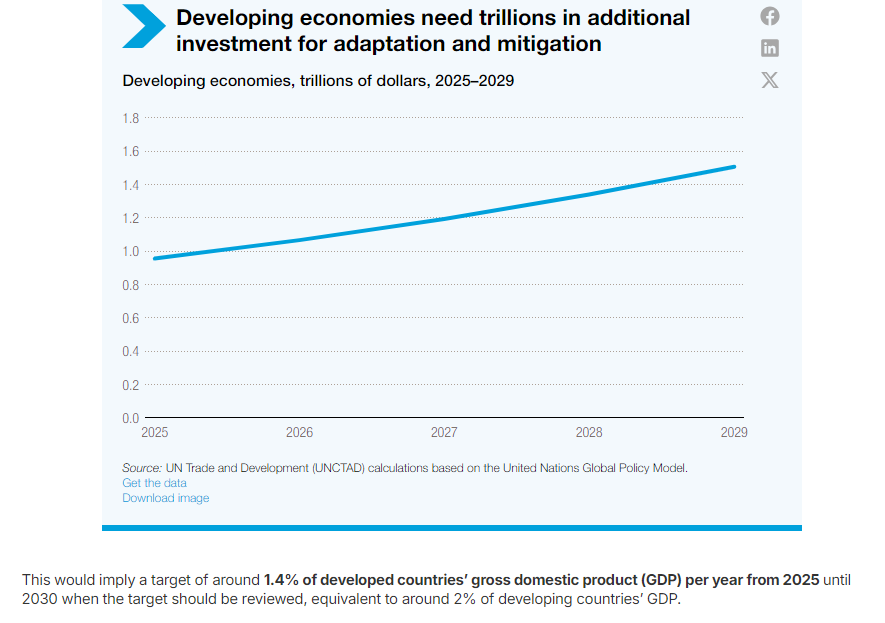Malawi Leads Call for Trillions in Climate Grants, Rejects Loans
As chair of the Least Developed Countries group, Malawi is pushing for a substantial increase in grant-based climate financing to address loss and damage, rejecting further indebtedness for a crisis.
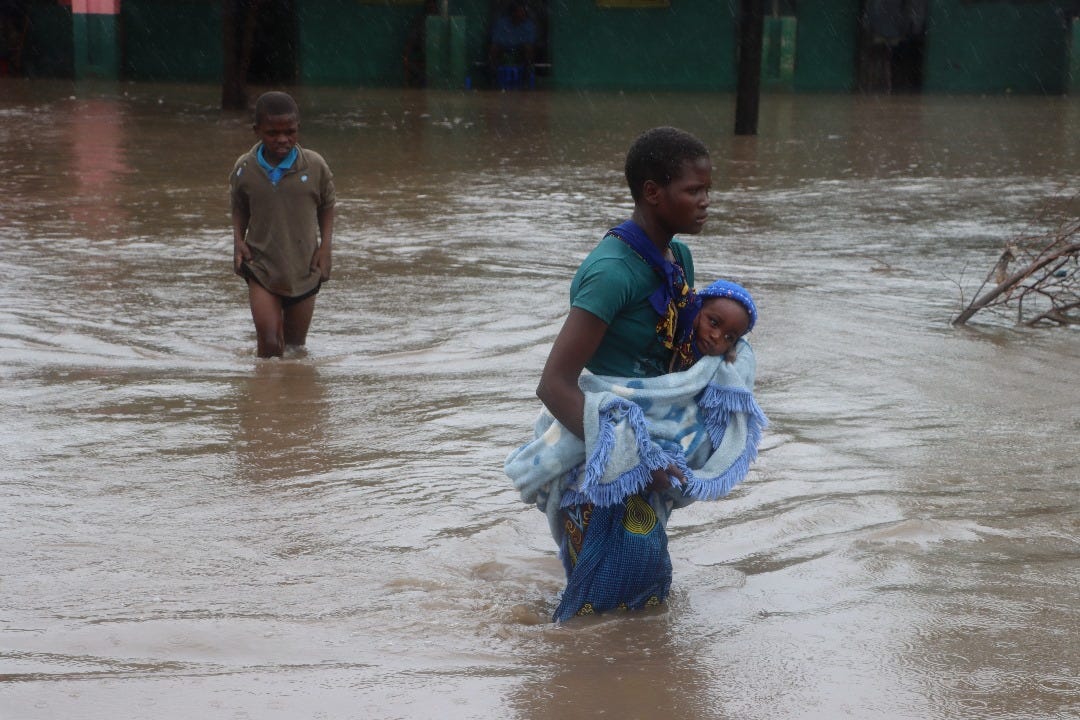
BLANTYRE, Malawi— As Malawi chairs the Least Developed Countries (LDC) group ahead of the crucial COP29 climate talks in Baku, Azerbaijan, from November 11 to 22, 2024, the country is spearheading a strong push for significantly increased climate finance from developed nations to support vulnerable communities, writes Winston Mwale.
In an interview recently, Yamikani Idriss, Malawi's top climate negotiator and the Environmental Officer at the Ministry of Natural Resources and Climate, outlined the LDC group's key priorities and demands as they prepare to make their voices heard on the global stage.
"This year is dubbed the 'COP of finance,' so it's very important that we have serious messages on private finance and how this finance could be improved to make an impact on the vulnerable communities that are waiting for the much-needed support," said Idriss.
At the heart of the LDC group's agenda is the call for a new collective goal on climate finance (NCQG) that is based on the actual needs of developing countries rather than the widely criticised $100 billion annual target.
"The hundred billion, the way it was agreed, just came out without proper discussion and calculation on how the basis of the hundred billion is still questionable," Idriss explained.
"Now the opportunity is there that when we are agreeing to a figure, we should agree if [a] quantum, which should be based on the actual needs of developing countries, including Malawi, and also it should provide for how and when that should be achieved."
The LDC group is pushing for "trillions of dollars" under the NCQG, the majority of which should be in the form of grants rather than loans.
This, Idriss said, is to avoid saddling already vulnerable communities with additional debt burdens.
"As you understand, like Malawi, we are having a lot of loans and then borrowing another resource to respond to climate change; something that we didn't cause might not save their purpose, and it might just be another burden to Malawi," he explained.
Idriss acknowledged the concerns raised about the potential misuse of grant-based climate finance but argued that the LDC group is working to address those issues through initiatives like the Least Developed Countries Initiative for Effective Adaptation and Resilience (LIFE-AR).
"We have committed to the developed countries that are supporting this initiative that we will do business as usual. We are going to ensure that at least 70% of the resources we are getting should reach the communities on the ground," he said.
"And we have set up all the mechanisms to show that those resources trickle down, and it gives the authority to the communities themselves to do their own participatory risk and variability assessments, and then it's them who prioritise the investments they want to respond to their local adaptations and resilience."
LDC Push for Trillions in Grants Under NCQG
The LDC group is pushing for "trillions of dollars" under the New Collective Quantified Goal on Climate Finance (NCQG), with most of this funding provided as grants instead of loans, due to the following reasons:
Historical Responsibility and Climate Justice
Developed countries bear historical responsibility for causing climate change. Their past and current emissions have created the climate crisis, while developing countries, particularly LDCs, are disproportionately suffering the consequences.
Providing grants, not loans, for loss and damage aligns with climate justice principles. Burdening already struggling countries with additional debt to address a crisis they did not cause is considered unjust.
Financial Burden and Debt Vulnerability of LDCs
Many LDCs are heavily indebted and face significant challenges in servicing their existing loans. Adding more loans for climate change response would further exacerbate their financial burden and hinder their development progress.
Loss and damage caused by climate change further strains the economies and fiscal space of developing countries. Loans for addressing loss and damage would create a vicious cycle of debt and vulnerability.
Need for Adequate and Equitable Funding
The scale of finance needed to address loss and damage in developing countries is massive. Estimates suggest that economic loss and damage alone could reach US$447-894 billion per year by 2030 for developing countries.
The current level of climate finance, including for loss and damage, falls far short of meeting the needs of developing countries. The previously pledged US$100 billion per year has not been fully delivered, and it was inadequate to begin with.
Grant-based finance ensures that funding is used directly for addressing loss and damage rather than for servicing debt. This allows for a more efficient and equitable use of resources to support vulnerable communities.
Ensuring Effective and Accountable Use of Funds
While concerns exist about potential misappropriation of grant funding, LDCs are committed to improving their financial management and ensuring transparency. They recognise the need to strengthen domestic systems to ensure that grants reach the intended beneficiaries and achieve their purpose.
LDCs advocate for simplified access modalities and direct financing mechanisms to ensure that funds reach local communities and affected populations efficiently. They argue that involving local communities in decision-making processes will lead to more effective and sustainable solutions.
The LDC group also stresses the importance of robust monitoring, evaluation, and accountability frameworks for the LDF. They emphasise the need for transparency and clear mechanisms to track the flow and impact of funding.
The LDC group's push for trillions of dollars in grant-based finance under the NCQG reflects their understanding of the scale and urgency of the climate crisis, as well as their commitment to ensuring climate justice and equitable support for the most vulnerable countries.
Idriss argues that this funding is essential to enable developing countries to adapt to climate change impacts, address the losses and damages they are experiencing, and build resilience for a sustainable future.
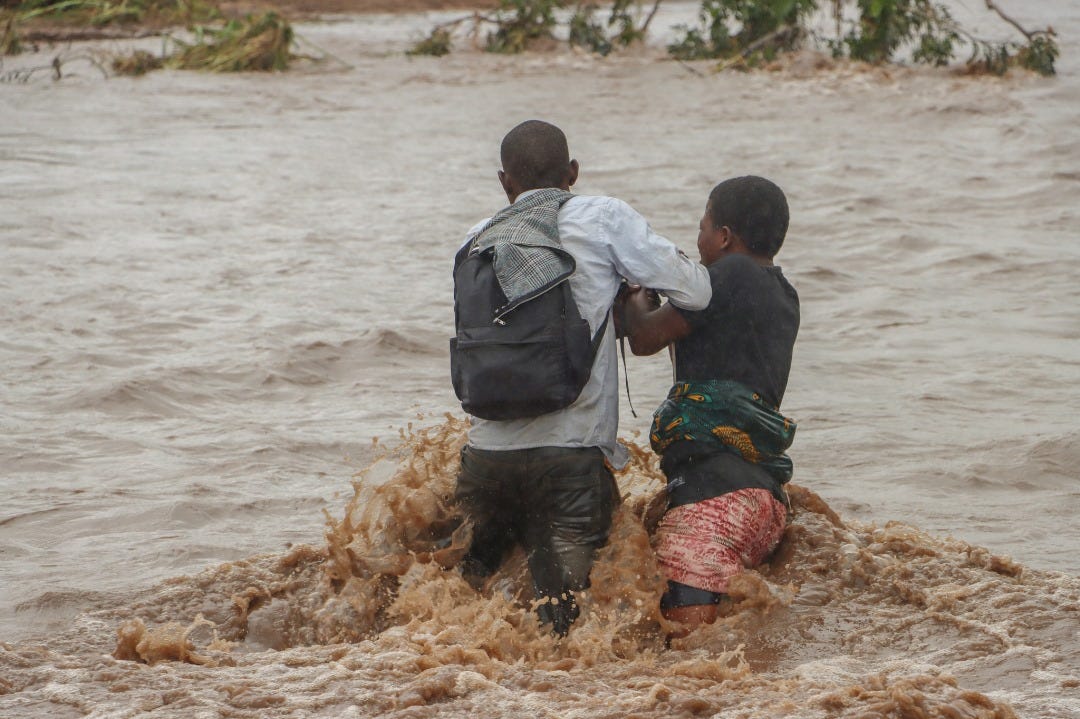
The LDC group's positions on climate finance are outlined in the Lilongwe Declaration, which was adopted by LDC ministers on 28th August, 2024.
The declaration also emphasises the need to strengthen the implementation of the outcomes from the first-ever global stocktake under the Paris Agreement, which identified significant gaps in mitigation and finance.
"The Global Stocktake (GST) highlighted how we can achieve or we can keep 1.5 [degrees Celsius] aligned. It provided to the world that we need to revise our NDCs [Nationally Determined Contributions] next year," said Idriss.
"We should be aligned to 1.5 degrees, so all the parties have to revise their NDCs in aligning 1.5."
The LDC group is therefore calling for stronger language on the need to transition away from fossil fuels and scale up renewable energy, as well as for developed countries to significantly increase their emission reduction targets.
Idriss acknowledged that reaching an agreement on these key issues will not be easy, as developed countries are often reluctant to take on greater responsibility. However, he expressed optimism that the political will is there to achieve some form of compromise.
"We understand it will be difficult, as usual. But the good thing is the political will is there. I think one of the hopes that we do have is that at the end, we still have an agreement or we reach an agreement on something, which may not be the best agreement, but we still have something from the hope, which would help us come back and support the vulnerable communities in our countries," he said.
Beyond the negotiations, Idriss emphasised the importance of amplifying the voices and stories of the vulnerable communities on the frontlines of climate change, an area where Malawi is making efforts.
"We need the voices from the ground as well. So this is a very important process, and we are happy to interact with you journalists to respond to any questions," he said.
"Every time we go to COP, of course when resources permit, as Malawi, we also have journalists who move around and do videos and so on, which we do air at our pavilion."
However, Idriss acknowledged that more work is needed to develop a comprehensive strategy for capturing and sharing the stories of those most impacted by climate change, particularly when it comes to quantifying non-economic losses and damages.
"Once we are hit by the floods or any other disasters, it will be a problem for us to express fully the losses so that we have the actual support from the loss and damage fund," he said.
"We still need more work to be done, and that's what we are calling for as LDCs—more instruments, more scientific ways of how we would quantify both losses and in terms of economic and non-economic."
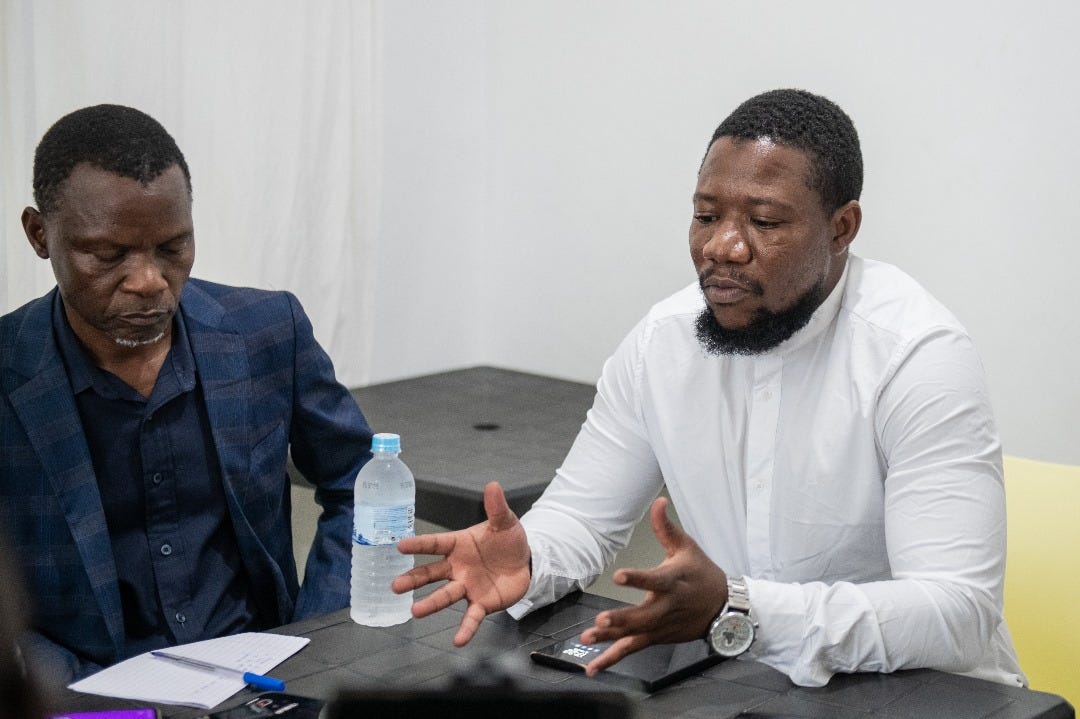
As Malawi leads the LDC group's efforts at COP29, Idriss emphasised the importance of the international community heeding the call for climate justice and supporting the most vulnerable nations.
"Our friends from the developed countries, for instance, now one of the huge issues will be what the quantum will be like the actual figure because they don't want to take more responsibility. That's a fact," he said.
"And that's what we're also seeing under the NCQG. And also need to expand the contributor because they feel like other developing countries can contribute a lot."
However, the LDC group remains steadfast in its position that the primary responsibility lies with developed countries, which have benefitted from the unsustainable development that has driven climate change.
"While the developing countries are saying, no, it should remain their responsibility and should use the language that others may contribute, not a must," Idriss said.
The recent devastation wrought by Cyclone Freddy in Malawi in March 2023 serves as a stark reminder of the urgent need for enhanced loss and damage finance.
The cyclone, which triggered widespread flooding and landslides, left a trail of destruction across Malawi, claiming hundreds of lives and displacing hundreds of thousands of people.
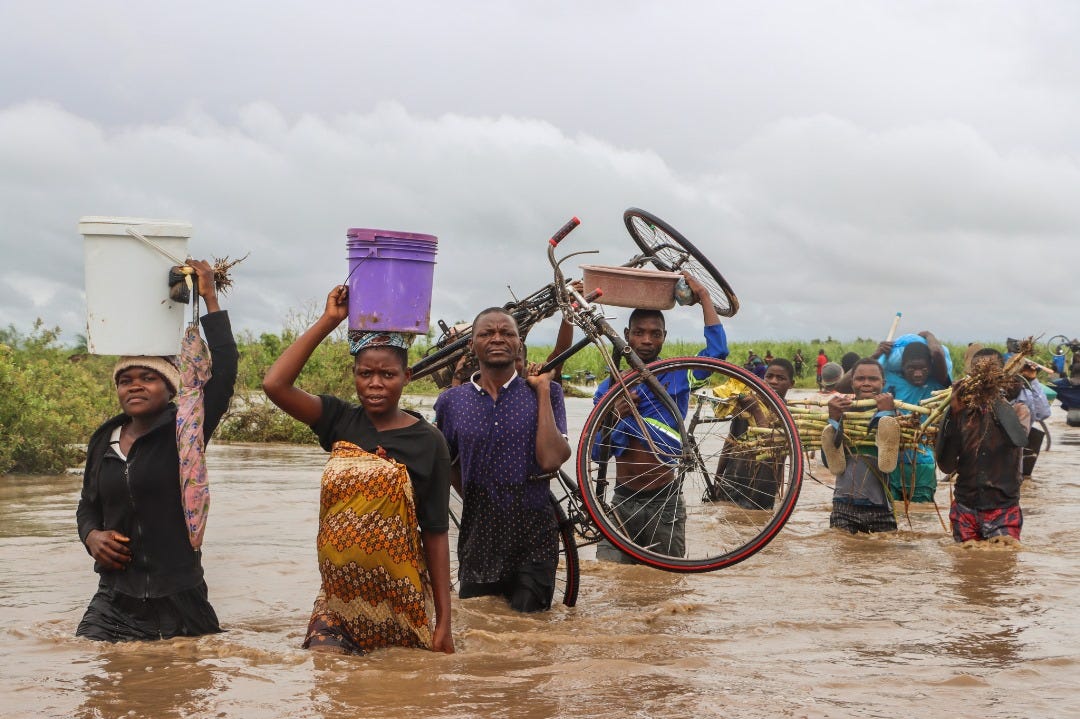
A report from Malawi’s Department of Disaster Management Affairs provides a snapshot of the scale of the damage in the country:
● Loss of life: 679 people dead, 537 missing, and 2,178 injured.
● Displacement: 659,278 people were displaced across 747 sites.
● Damage to infrastructure: roads, bridges, schools, healthcare facilities, and houses were damaged or destroyed.
● Damage to agriculture: Thousands of hectares of crops and livestock were washed away.
●Economic loss: US$950 million required for recovery.
Specific Impacts:
● Shelter: 146,506 households were displaced, seeking shelter in designated camps, schools, churches and other temporary shelters. These shelters were often overcrowded and had limited access to basic services.
● Food Security: 1.6 million people lost their food stocks and crops. Maize supplies in markets were low or unavailable.
● Nutrition: 340,267 children under five, 181,098 pregnant women, and 2,385 chronically ill people were affected.
● WASH (Water, Sanitation, and Hygiene): Water supply infrastructure and sanitation facilities were damaged. Boreholes were submerged, compromising water quality.
● Health: 313 health facilities were destroyed, and 92 health workers were displaced, disrupting health services. The risk of waterborne diseases like cholera increased.
● Protection: vulnerable groups, including children, women, the elderly, and people with disabilities, were at increased risk of violence, abuse, and exploitation.
● Education: 624 schools were affected, with 724,811 learners temporarily unable to attend classes. 408 schools were used as displacement camps.
The cyclone had a devastating impact on the lives and livelihoods of people in the Southern Region of Malawi.
The recovery and reconstruction efforts will require substantial financial resources and a coordinated effort from the government, humanitarian organisations, and the international community.
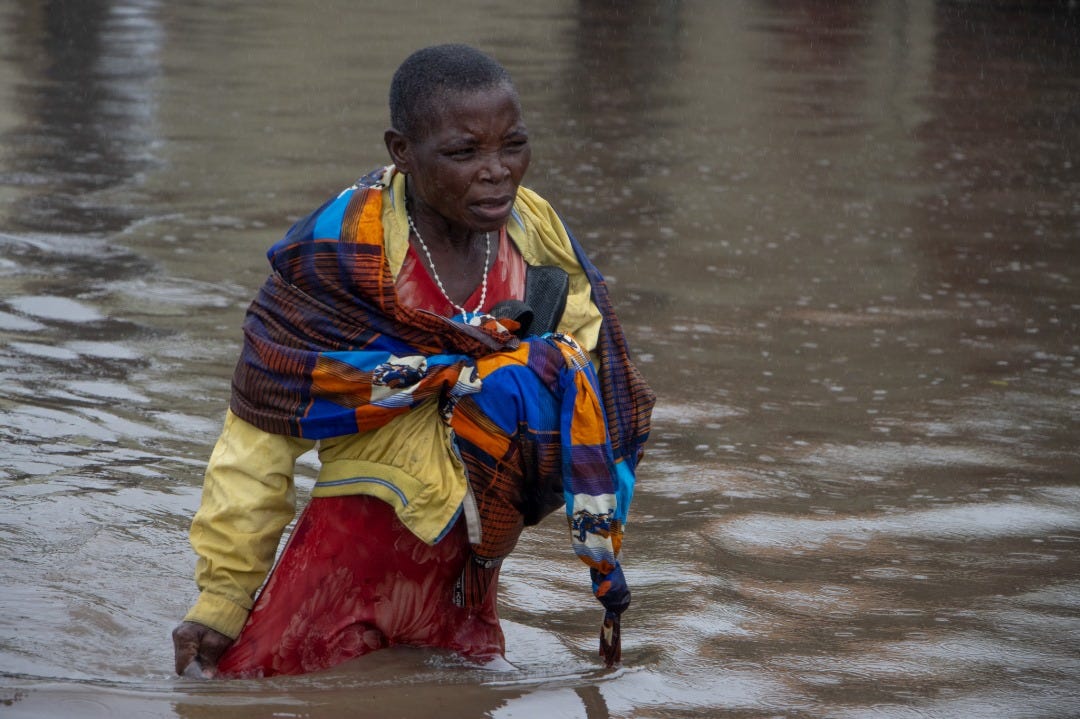
Meanwhile, as Malawi grapples with devastating climate disasters, Vice President Michael Usi will represent the nation at the UN Climate Change Conference (COP-29) in Baku, Azerbaijan, carrying the urgent message of a country on the frontlines of the climate crisis.
Usi's attendance at the November 11-22 conference comes at a critical time for Malawi, which has endured multiple climate catastrophes in recent years.
The stakes have never been higher for developing nations seeking crucial climate finance.
The conference is expected to set a landmark New Collective Quantified Goal (NCQG) for climate finance, with developing countries requiring an estimated $1.1 trillion from 2025, escalating to $1.8 trillion by 2030.
For Malawi, which chairs the Least Developed Countries (LDC) group on Climate Change, this represents a critical opportunity.
The nation has been battered by successive climate disasters, including the unprecedented Cyclone Freddy in 2023, which claimed to have displaced 659,278 people and left 679 dead, 2,178 injured, and 537 missing.
These devastating impacts underscore the urgent need for substantial climate financing.
The proposed framework is designed to uphold the principle of common but differentiated responsibilities and respective capabilities (CBDR-RC), recognizing the varying capacities of nations to address climate change.
Under the proposed framework, developed nations are expected to contribute approximately three-quarters of the required investments, translating to $890 billion in 2025 and rising to $1.46 trillion by 2030.
This marks a transformative shift from the current $100 billion floor, acknowledging the mounting climate challenges facing developing nations.
As both Vice President and Minister of Natural Resources and Climate Change, Usi will speak not only for Malawi but also represent 45 other member states as chair of the Least Developed Countries (LDC) group on climate change.
His mission is crucial: securing timely and adequate climate financing for nations most vulnerable to climate impacts.
The stakes could not be higher.
Since 2010, Malawi has endured 16 major flooding events, multiple storms, and two severe droughts.
For Malawi, where over 16 million people depend on rain-fed agriculture and 4.4 million currently face food insecurity due to the current El Niño phenomenon,, which which has exacerbated an already precarious situation, access to adequate climate finance could mean the difference between recovery and recurring crises.
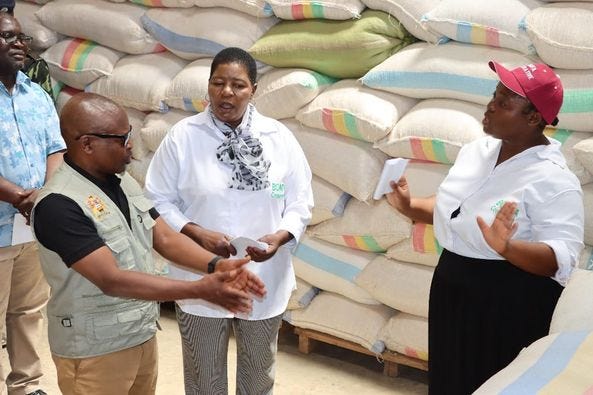
During his stay in Baku, Usi will engage in bilateral discussions with representatives from the United Kingdom, Scotland, Africa Climate Foundation, Green Climate Foundation, and OPEC Fund for International Development.
These meetings are expected to focus on securing support for climate adaptation measures and building resilience in Malawi's agricultural sector.
The Malawi Department of Climate Change and Meteorological Services has reported a mean annual temperature increase of 0.2°C since 1971, with projections indicating further warming in the coming decades.
The economic impact of these climate disasters has been severe - for instance, Tropical Storm Ana in 2022 caused damages estimated at US$126-192 million, equivalent to 1.5-2.7 percent of Malawi's 2020 GDP.
Usi's delegation is carrying with them the hopes of a nation seeking international support to break the cycle of climate-induced disasters and poverty.
His participation at COP-29 represents a critical opportunity to secure the resources needed for Malawi's and other LDCs’ climate resilience and adaptation strategies.
The success of this mission could determine Malawi's (and the rest of LDCs’) capacity to protect its people from future climate shocks and build a more resilient future for its most vulnerable communities.
As the world's attention turns to crucial climate negotiations, the LDC group, led by Malawi, is determined to ensure that the voices and needs of the most vulnerable are heard and addressed.
The stakes have never been higher, and the LDCs are fighting for a future where their communities can not only survive but thrive in the face of the existential threat posed by climate change.




